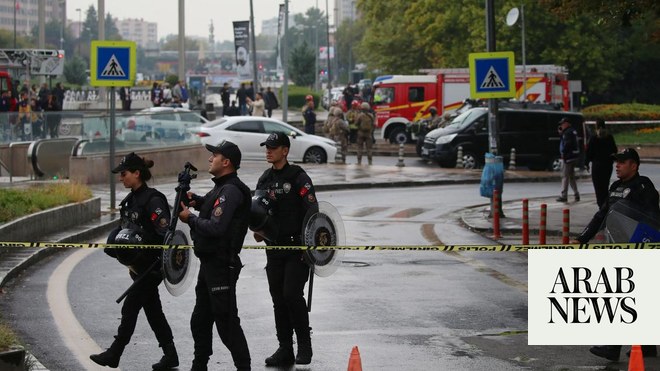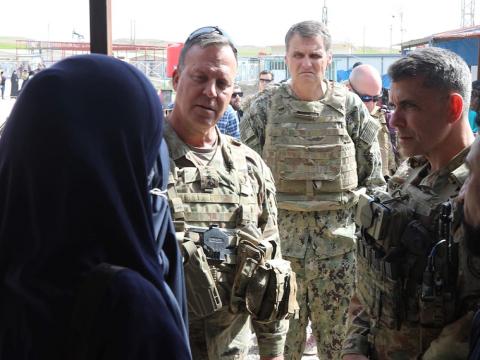
Kurdish forces in north-east Syria have begun a security operation inside al-Hawl detention camp in an attempt to eliminate Isis sleeper cells that have become increasingly active over the last few months.
Around 5,000–6,000 Kurdish troops and Asayish security police, led by the Syrian Democratic Forces (SDF) military, entered the camp on Sunday to conduct searches and arrests in what is expected to be a 15-day operation.
Local Kurdish sources said the aim was to isolate and arrest Isis ringleaders – one of whom had already been detained – and to improve access for relief groups at a site where living conditions are desperate and malnutrition is rife.
Western forces were not involved, the Kurdish sources added. However, a spokesman for Operation Inherent Resolve, the US-led military coalition against Isis, said it was taking place with their support.
“Our SDF and Asayish partners began an op[eration] intent on improving security, safety and access to NGO assistance for those residing at al-Hawl IDP camp. Preventing future generations of Daesh [Isis] from growing at the camp will ensure the enduring mission to defeat Daesh,” spokesman Wayne Marotto tweeted.
The Hawl camp houses around 70,000 people, mostly women and children, many of whom remain Isis supporters, despite the territorial defeat of the terror group by a coalition of western and Kurdish forces in 2019.
Although the SDF controls access to and from Hawl, Kurdish forces admit they have had little control inside its perimeter. Guards have been attacked and killed, sometimes stabbed with knives from kitchen kits handed out by charities.
Experts have repeatedly warned that the camp could be a breeding ground for future Islamist radicalisation, but there has been no attempt to break it up, which would require the UK and other countries to agree to repatriate those held inside, many of whom are considered dangerous.
On Friday, Peter Maurer, president of the International Committee of the Red Cross, the global umbrella organisation for the relief group, visited Hawl and described it as a place where “hope goes to die”.
“Food, basic medical services, everything is complicated,” he said, before highlighting the problems caused by the lack of education leading to “kids who grow older and older and who don’t have a perspective for the future”.
Maurer said it was “a scandal that the international community allows such a place to continue: not because of insurmountable humanitarian problems, but because of political divergences”.
The women in the camp were largely picked up by Kurdish forces after the fall of Baghuz, the last Isis stronghold, in 2019. People who were originally from 60 countries are housed in a large annexe for foreigners, those not originally from Syria or Iraq, including, for a time, Shamima Begum.
Begum, however, was moved to the smaller Roj camp, considered less of a security risk, for her own safety after she told reporters she wanted to return to the UK. But her efforts to persuade the British authorities to allow her repatriation have so far been unsuccessful; the supreme court rejected an appeal from the 20-year-old last month.












